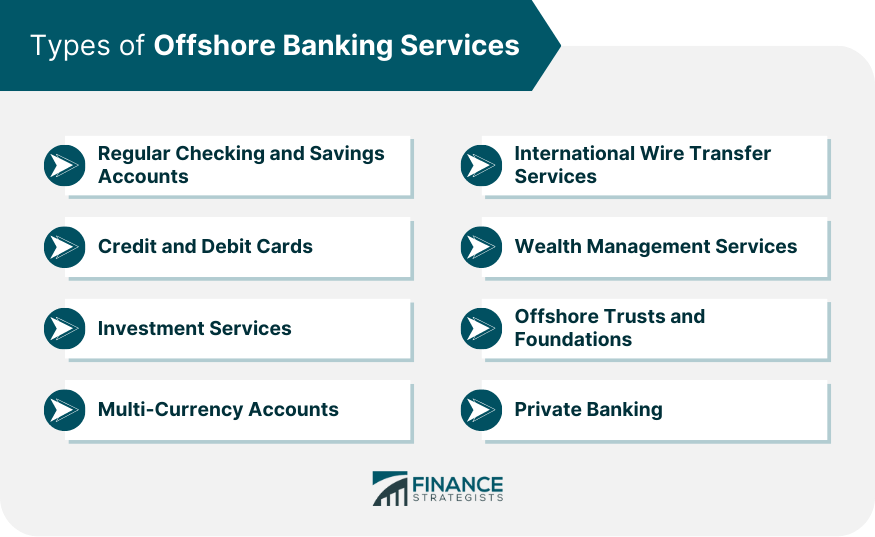Understanding Offshore Business Formations: A Comprehensive Overview to the Process and Advantages
Offshore business formations offer a calculated method for entrepreneurs looking for to optimize their company procedures. These entities often give benefits such as tax advantages, increased privacy, and robust asset defense. Nonetheless, comprehending the intricacies of choosing a jurisdiction, the formation process, and conformity requirements is vital. As the landscape of worldwide business develops, the ramifications of developing an offshore company warrant cautious consideration. What actions should one require to browse this complicated terrain?
What Is an Offshore Firm?
An overseas firm is a company entity incorporated outside the territory of its proprietors' home, typically in a nation with beneficial regulative and tax obligation settings. These companies can serve various objectives, including asset protection, worldwide trading, and wide range monitoring. They are commonly developed in jurisdictions called tax obligation havens, where company tax obligation rates are nonexistent or reduced, and privacy legislations are strict.
Offshore firms may be owned by people or various other company entities and can run in numerous industries, consisting of ecommerce, financing, and consulting. While they use certain benefits, the lawful and regulative frameworks governing overseas business differ substantially by territory. Local business owner need to browse these intricacies to guarantee compliance with both international and neighborhood regulations. Recognizing the framework and feature of overseas firms is necessary for people considering this alternative for organization procedures or property monitoring.
Advantages of Developing an Offshore Company
While the choice to develop an offshore company may originate from numerous critical considerations, the possible benefits are compelling for several business proprietors. One substantial advantage is tax optimization; several overseas territories supply favorable tax obligation rates or also tax exceptions, allowing firms to retain even more revenues. Additionally, overseas companies commonly give boosted personal privacy defense, shielding the identities of shareholders and directors from public scrutiny.

Company owners might locate operational adaptability, as offshore jurisdictions regularly have less governing hurdles, allowing streamlined monitoring and governance. Jointly, these advantages make offshore firm formations an attractive option for many looking for to broaden their company perspectives.
Picking the Right Jurisdiction
Picking the proper jurisdiction for an offshore firm is an essential action in making the most of the advantages laid out earlier. Numerous elements influence this decision, consisting of tax obligation regulations, company legislations, and the overall company setting. Territories such as the British Virgin Islands, Cayman Islands, and Singapore are usually preferred for their favorable tax obligation programs and robust lawful structures.
It is essential to take into account the specific demands of the company, such as personal privacy requirements and regulatory compliance. Furthermore, the convenience of operating, consisting of the performance of company enrollment and banking centers, plays a significant function.
Potential owners should likewise assess the political security and reputation of the picked jurisdiction, as these elements can affect long-term success. Ultimately, thorough research and professional appointment are recommended to assure alignment with the company's objectives and to utilize the full potential of offshore benefits.

The Offshore Business Formation Process
The overseas company formation process includes a series of vital steps that need mindful planning and implementation. Services or people need to select an appropriate territory that straightens with their goals, thinking about factors such as tax advantages, personal privacy, and regulative setting. Following this, the next action involves picking the ideal service structure, such as an International Organization Firm (IBC) or Restricted Liability Business (LLC)
As soon as the structure is determined, necessary documents, consisting of an organization plan, recognition, and evidence of address, have to be prepared. Involving a trustworthy local agent or service company can improve this stage, making certain compliance with regional guidelines. After sending the called for documentation to the appropriate authorities, the development procedure typically finishes in the issuance of a certification of consolidation. This paper establishes the company as a legal entity, permitting it to carry out service worldwide.
Lawful Needs and Compliance
Comprehending the lawful demands and conformity responsibilities is necessary for anybody wanting to establish an offshore business. Each territory has certain policies that must be adhered to, which can include company registration, getting needed licenses, and keeping local addresses. Offshore Company Formations. It is crucial to select a signed up representative who can help with interaction with local authorities and guarantee compliance with recurring coverage demands
Furthermore, several jurisdictions require the entry of yearly monetary declarations, in great site addition to tax filings, even if the business does not produce earnings. Investors and directors must be recognized, with due diligence procedures commonly mandated to verify their identities. Failing to fulfill these lawful obligations can result in fines or the dissolution of the firm. Because of this, potential offshore company proprietors ought to talk to attorneys experienced in worldwide business regulation to navigate these intricacies effectively and guarantee full compliance with all policies.
Tax Ramifications of Offshore Business
The tax effects of offshore companies present significant advantages that bring in lots of entrepreneurs. Understanding the associated conformity needs is crucial for navigating the intricacies of global tax obligation legislations. This area will certainly discover both the potential benefits and the essential obligations connected to overseas business structures.
Tax Obligation Advantages Overview
Although offshore companies are usually checked out with skepticism, they can provide significant tax obligation benefits for businesses and people seeking to optimize their monetary techniques. One of the primary advantages is the possibility for lower company tax obligation rates, which can cause considerable financial savings. Lots of offshore territories supply desirable tax programs, including absolutely no or marginal tax on revenues, capital gains, and inheritance. Additionally, overseas companies can assist in international company operations by reducing tax obligation obligations related to cross-border purchases. This structure might additionally enable address tax deferral opportunities, allowing earnings to grow without immediate tax. Ultimately, these advantages add to boosted economic efficiency and property security, making offshore firms an eye-catching option for smart financiers and entrepreneurs.
Compliance Demands Discussed
Offshore business might provide tax obligation advantages, however they additionally include a set of compliance requirements that need to be meticulously browsed. These entities are subject to certain reporting commitments, which vary substantially depending upon the jurisdiction. Usually, overseas business have to keep precise financial documents and send yearly economic statements to follow local regulations. In addition, lots of territories require the disclosure of beneficial ownership to combat money laundering and tax evasion. Failure to comply with these conformity steps can result in extreme penalties, consisting of fines and prospective loss of organization licenses. Understanding the local tax obligation legislations and worldwide arrangements is vital, as they can affect tax obligation liabilities and overall functional legitimacy. Engaging with legal and financial experts is suggested to assure complete conformity.
Keeping and Handling Your Offshore Company
Preserving and handling an offshore company entails sticking to various recurring conformity needs important for lawful procedure. This includes diligent financial record keeping and an understanding of tax obligations pertinent to the business's territory. Effective administration not only ensures regulative conformity however additionally supports the firm's monetary wellness and long life.
Continuous Conformity Needs
Ensuring continuous conformity is important for any entity operating in the overseas field, as failure to satisfy regulatory requirements can result in significant charges or perhaps dissolution of the firm. Offshore firms should adhere to local legislations, which may consist of annual declaring of monetary statements, payment of essential costs, and preserving an authorized workplace address. In addition, business are typically called for to select a regional representative or rep to help with interaction with authorities. Routine updates on changes in legislation or tax obligation requirements are crucial for compliance. Adherence to anti-money laundering (AML) and know-your-customer (KYC) guidelines is vital. By preserving organized records and remaining notified, overseas companies can ensure they remain compliant and minimize threats connected with non-compliance.
Financial Record Keeping
Effective financial record keeping is necessary for the successful monitoring of any overseas company. Keeping accurate and in-depth financial records aids in tracking the business's performance, ensuring conformity with local regulations, and assisting in educated decision-making. Business must implement methodical procedures for recording income, expenditures, and transactions over at this website to produce transparency and accountability. Using audit software application can streamline this procedure, permitting real-time monetary evaluation and coverage. On a regular basis evaluating economic declarations assists determine fads, analyze productivity, and handle money flow successfully. Moreover, it is vital to safely keep these records to safeguard sensitive details and guarantee simple accessibility during audits or financial reviews. By focusing on precise economic document maintaining, offshore companies can enhance operational performance and support lasting success.
Tax Obligations Overview
Recognizing tax obligation responsibilities is crucial for the appropriate administration of an overseas company, as it straight affects financial efficiency and conformity. Offshore companies may be subject to different tax obligation legislations relying on their territory, consisting of corporate tax obligations, value-added taxes, and withholding tax obligations. It is important for entrepreneur to stay educated regarding their tax obligation duties, as failure to abide can cause fines and lawful concerns. Furthermore, many overseas jurisdictions supply tax rewards, which can considerably profit organizations if browsed properly. Engaging a knowledgeable tax obligation advisor or accounting professional concentrating on international tax obligation regulation can help guarantee that business satisfy their commitments while optimizing their tax techniques. Eventually, thorough tax management adds to the overall success and sustainability of an offshore entity.
Often Asked Questions
Can I Open a Savings Account for My Offshore Firm From Another Location?
The capacity to open a checking account for an overseas company remotely depends upon the financial institution's plans and the territory's guidelines. Numerous banks use remote services, however details requirements may vary significantly in between establishments.
What Are the Expenses Involved in Creating an Offshore Company?
The prices entailed in creating an overseas business generally include registration charges, legal and consulting expenditures, and recurring maintenance costs. These expenditures differ considerably based upon jurisdiction, complexity of the business framework, and details solutions required.
Exist Restrictions on That Can Be a Shareholder?
Constraints on shareholders differ by jurisdiction. Some countries might impose restrictions based on residency, service, or citizenship type - Offshore Company Formations. It's vital for potential investors to study particular regulations appropriate to their chosen offshore place
How much time Does the Offshore Company Formation Refine Generally Take?
The offshore business formation process typically takes between a couple of days to a number of weeks. Aspects affecting the timeline include territory needs, document prep work, and responsiveness of appropriate authorities associated with the registration procedure.
What Takes place if I Fail to Adhere To Regional Laws?
Failure to follow local laws can result in serious charges, including penalties, lawsuit, or loss of company licenses - Offshore Company Formations. It may likewise damage the firm's track record and prevent future service opportunities in the jurisdiction
An offshore business is a service entity incorporated outside the territory of its proprietors' house, typically in a nation with beneficial governing and tax atmospheres. One substantial benefit is tax optimization; several offshore jurisdictions provide desirable tax obligation prices or even tax obligation exceptions, allowing companies to maintain more earnings. Overseas business are commonly checked out with apprehension, they can use significant tax obligation benefits for people and businesses seeking to maximize their financial methods. Furthermore, offshore firms can promote international business operations by lowering tax obligation responsibilities linked with cross-border deals. Offshore companies may be subject to different tax regulations depending on their jurisdiction, including corporate tax obligations, value-added tax obligations, and withholding tax obligations.